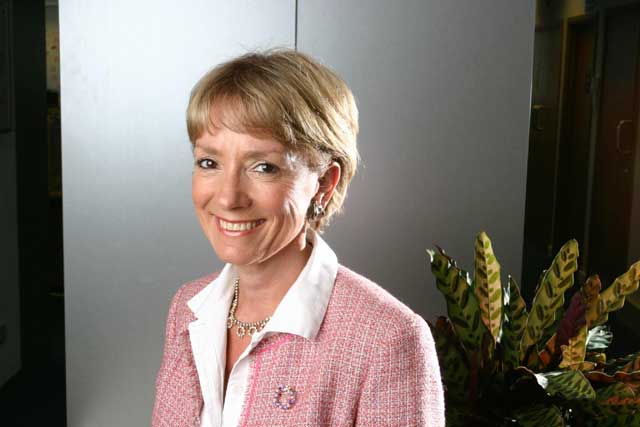My Way: Ruth Spellman, chief executive of Chartered Management Institute
'This generation assumes equality – we had to fight for it'

Your support helps us to tell the story
From reproductive rights to climate change to Big Tech, The Independent is on the ground when the story is developing. Whether it's investigating the financials of Elon Musk's pro-Trump PAC or producing our latest documentary, 'The A Word', which shines a light on the American women fighting for reproductive rights, we know how important it is to parse out the facts from the messaging.
At such a critical moment in US history, we need reporters on the ground. Your donation allows us to keep sending journalists to speak to both sides of the story.
The Independent is trusted by Americans across the entire political spectrum. And unlike many other quality news outlets, we choose not to lock Americans out of our reporting and analysis with paywalls. We believe quality journalism should be available to everyone, paid for by those who can afford it.
Your support makes all the difference.Ruth Spellman is the chief executive of the Chartered Management Institute. She was previously the first woman chief executive of the Institution of Mechanical Engineers.
What did you want to be as a child?
The first woman Prime Minister.
What did you think you'd end up doing?
I thought that was realistic. I always knew women were under-represented and I was very determined to become PM!
You studied economics at Cambridge University – was it worth it?
It was great; I did a lot of debating and met a lot of politicians. Then I joined the National Coal Board, because I wanted to use my economics degree, and I wanted to know if a nationalised industry could work.
How did you work your way up?
I discovered early on that it's people I'm interested in and that was a theme in my career. I also really enjoy the competitive process. I won't be put down and people respect that. But when I worked at the National Economics Office I was passed over for promotion, because I decided to work part-time to have children. I was never tapped on the shoulder like the others. After 10 years and three children, I left.
Will your daughters have to negotiate time off to have children?
They expect to be treated equally, although they will have the same unpleasant surprises, such as getting paid less than men. But I think they won't put up with it. This generation assumes equality – we had to fight for it.
Do you consider yourself successful?
Yes, but not in an easily defined way. I've not made as much money as I could have and I traded time for income, but I've had a balanced life.
What are your interview tips?
Know it all and read everything you can, but don't come with a prepared speech. Look smart and smile, appearance is not trivial. I'm interested in people who have broad experience and who haven't had a smooth path but had to deal with tricky environments.
And your CV tips?
CVs should be succinct and easy to read, with recent experience first. Explain any gaps up front; don't try to hide anything.
How long is your lunch break?
I just take 10 minutes out to have a walk.
How do I get to be where you are?
I'd thoroughly recommend going to university, otherwise the move from the world of school to work is too abrupt. You need to get some thinking time, to find out who you are.
What was it like getting an OBE for services to workplace learning?
It was lovely. I keep the medal in the drawer of my dressing table at home and my nieces and nephews come and have a look.
Join our commenting forum
Join thought-provoking conversations, follow other Independent readers and see their replies
Comments